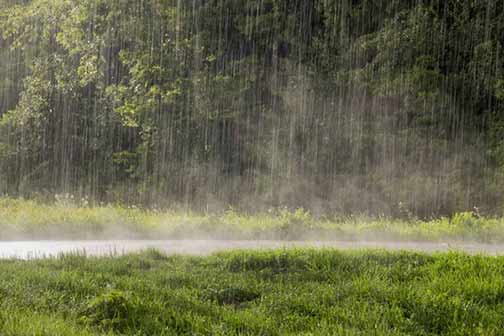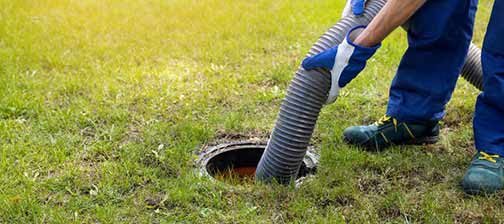
Heavy rainfall can threaten a septic system operation if the surrounding soil becomes oversaturated with water, says Allegiant Management team.
Septic systems rely on their drain field and surrounding soil to treat wastewater. After holding wastewater inside the tank for 2-3 days, the effluent leaves and flows through perforated pipes into the leach field for further treatment before percolating into the soil.
This process will not happen if the soil is saturated because of heavy rainfall. Instead of flowing into the drain field, the effluent will stay inside the septic tank. As more wastewater is added to the system, the tank eventually overflows, and septic waste will back up into the home.
When this happens, the septic system is said to have become overloaded.
What is the impact of an overloaded septic system?
Slow drains inside the home
If it has been raining heavily in your location and the drains suddenly become sluggish, it could be a sign that your septic system is overloaded.
Septic waste backup
An overwhelmed septic system may reach a point where the septic waste inside it starts to flow into your home through the toilet, shower drain, or floor drains.
Drain field saturation
A saturated drain field cannot absorb wastewater from the septic tank. Instead of the effluent percolating into the ground, it will pool on the surface of the soil.
Environmental pollution
Untreated wastewater from a septic system can contaminate your yard, nearby wells, or water bodies and the soil. This poses a health risk to human, animal, and plant life.

How to stop septic system overloading during heavy rains
You cannot stop the rain from falling. However, you can prevent heavy rainfall from interfering with the function of your septic system. You can do this by identifying and fixing problems that predispose the septic system to overflowing whenever it rains heavily.
Inspect and maintain the septic system on a schedule
Structural problems and other issues can upset the delicate balance of a septic system. Regular septic tank inspections and follow-up maintenance to resolve all detected problems are vital. At the very least, the system should be professionally inspected every 2-3 years. Regular pumping of the septic tank to remove all solids and get rid of obstructions also helps to prevent overloading. When inspecting the system, do not neglect to inspect the drain field. Pay attention to problems that encourage flooding surrounding the drain field.
Identify and fix existing landscaping and drainage issues
Proper landscaping and drainage in the area near the leach field help to minimize the risk of septic system overloading. To ensure that water is directed away from the septic tank, the ground should slope away from it and not towards it. The drain field should be graded properly to keep water from pooling on its surface. Having well-drained soil in the area with porous material as cover also helps. Shallow-rooted plant species – grasses, ground cover, and shrubs – increase the water absorption rate in saturated soils.
Reduce water usage during heavy rain
During heavy rains, you could adjust your home’s water usage to avoid overloading the septic system. You want to watch the water usage rate in your home at all times, not just during seasons of heavy rainfall. Avoid or limit activities that require you to use a lot of water. For instance, you should not use your dishwasher and washing machine if there is a risk of septic system overloading because of heavy rainfall. You may want to postpone these tasks until after the rain has stopped and the leach field has drained.
Protect your septic system from flood damage
Flooding can damage your septic system and make it more susceptible to overloading. If all the components of the system are in good condition, the risk of septic system overload is significantly lower. Securing the access lids with sandbags or heavy stones will keep floodwater and debris out of the septic tank. If there are openings in the system, they should be sealed. All electrical components installed in the septic system, such as pumps or float switches, should be elevated to protect them from water.
Install a French drain
Installing a French drain around your drain field will help divert runoff from the septic system. French drains are one of the most effective flood control measures you can deploy on your property. They are easy to install and maintain. A French drain will protect your home from flooding without impairing the aesthetics of your property. It is advisable to install French drains around the drain field where water is most likely to pool.
These are just a few ways to prevent septic system malfunction due to heavy rainfall. Depending on the uniqueness of your home, there may be other solutions. If septic system overloading from heavy rainfall is a big problem in your home, you should talk to our experts.

